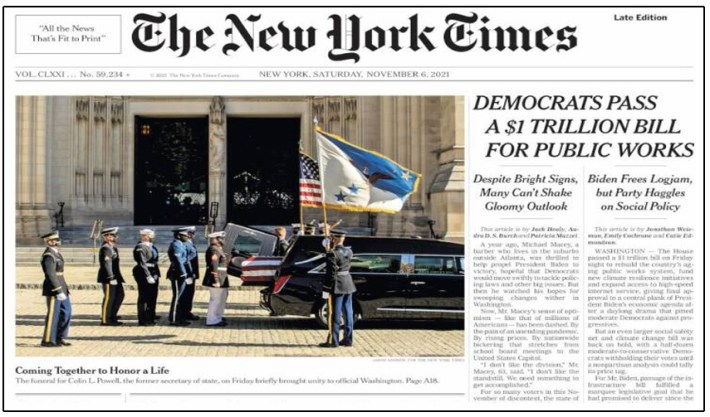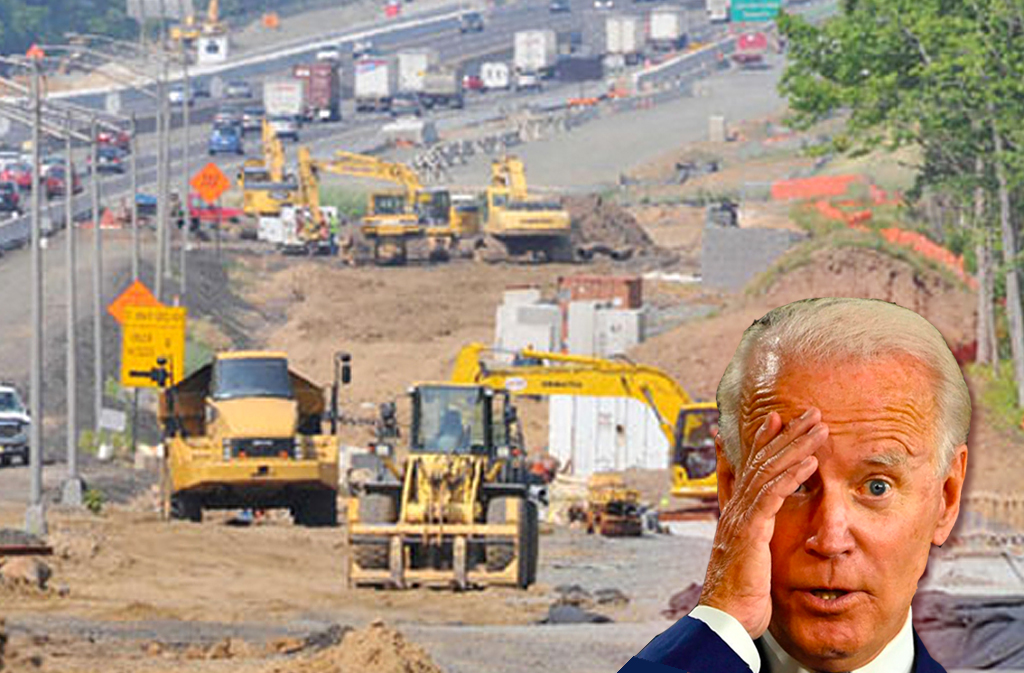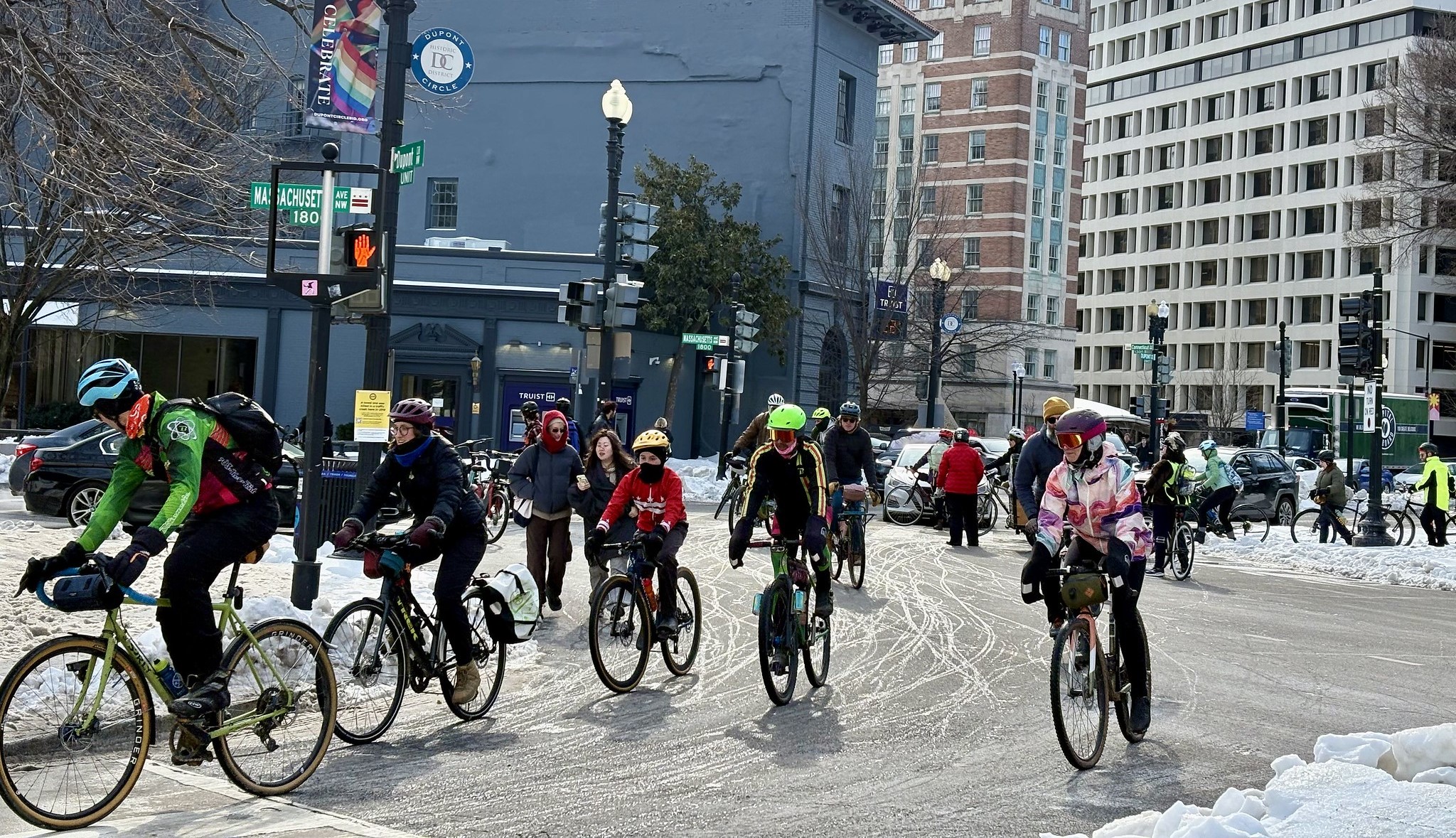This week marks two years since the passage of the Infrastructure Investment and Jobs Act — a historic investment in U.S. transportation systems at a critical moment. But despite the billions of dollars flowing to transportation, we’ve seen disappointingly little progress on the shift to clean transportation and transportation equity.
The IIJA promised to prioritize climate mitigation and equity, but most of its historic funding is helping to maintain a harmful status quo when experts say we need to start reducing the nation’s reliance on private cars and huge highways to stop climate change. Transportation is the largest source of U.S. climate pollution, and those emissions are rising compared to other sectors.
The Biden administration itself has recognized that reducing reliance on car travel is a vital part of fighting climate change — yet little has been done in the U.S. to shift in that direction. Meanwhile, efforts to address the harms of our transportation systems are being overshadowed by new projects perpetuating the same damages. It’s time to change course.
The IIJA did include some important steps forward: $5 billion for EV charging infrastructure to support a shift to electric vehicles; the Reconnecting Communities pilot program to repair the historic harms of 20th-century highway construction; and billions for transit capital grants, buses and bus facilities, and rail. These programs provide important opportunities to begin building the transportation infrastructure we need.
But right now things are mostly moving in the other direction. Some of these funds could be used for investments like transit and active mobility infrastructure, but state Departments of Transportation have largely doubled down on road work. Even in climate-leading states like California, 81 percent of the state’s transportation investments are going to maintain and expand the roadway system. In some cases, funds meant for repairs and pollution reductions are also being misused for highway expansions.

The sheer scale of investment in building and expanding more highways is also many times greater than the investment in repairing their harms. The Reconnecting Communities program, which aims to reconnect the neighborhoods torn apart by 20th century highway construction, provides just $1 billion (out of $350 billion for federal highway programs) to a handful of planning and construction projects. And in several cases, grants were given to projects that would keep or even expand highways. Nationally, that means these transportation equity efforts are likely to be set back (or at least overshadowed) by the new highway buildout.
Because of these dynamics, the IIJA could end up funding a huge setback for U.S. climate goals and transportation equity. What would that mean? Highway expansion and construction projects would continue to displace residents: a plan to expand I-45 in Houston would demolish roughly 1,000 homes, about half of which are low-income units, as well as five houses of worship and two schools; residents in Austin have raised similar issues around the plan to expand I-35. Air pollution and asthma rates in roadside communities would also likely rise. And all these issues would disproportionately affect low-income communities and communities of color.
Despite the grim picture, we can still change these trends. As part of our ongoing webinar series at the Labor Network for Sustainability, we’ve been exploring the kinds of policies that can improve mobility, grow economies, and create great union jobs. From building up our public freight and passenger rail to electrifying our school bus fleets and investing in EV infrastructure, there are important steps our Departments of Transportation could be taking to rebuild our transportation systems wisely and equitably.
To make it happen, we need to build constituencies that raise scrutiny over the decisions our Departments of Transportation make and demand the investments we really need instead of letting them perpetuate a broken status quo. That’s why the Labor Network for Sustainability is organizing for the next Transit Equity Day on Feb. 4, bringing together transit organizers and transit unions from across the country to discuss the issues we’re facing and the changes we need. We’re also urging members of Congress to fight for these priorities, including Rep. Hank Johnson’s bill for federal funding of transit operations.
Realizing our climate and equity goals means we must be more deliberate about directing these once-in-a-generation funds to clean and equitable transportation solutions our communities need. It’s time to prioritize transit operations, rail systems, active and micro-mobility infrastructure, and electrified transportation to ensure every person in our communities can get where they need to go affordably and reliably — and breathe clean air along the way.






